On the cusp of releasing Impossible Star, the first full-length album in over seven years, Jack Dangers of Meat Beat Manifesto embarks on a yet another groundbreaking jaunt through otherworldly terrain. Encompassing MBM’s signature audio collage of bass, beats, and distortion, Impossible Star delivers on all minimal and maximal fronts, and is described by Dangers as “…an album encompassing styles and things I’ve done over the last 32 years.” Christopher Mathieu (based in France) recently had the opportunity to speak with Jack from his home in the San Francisco Bay Area where we learn a little more about MBM’s current and past inspiration.
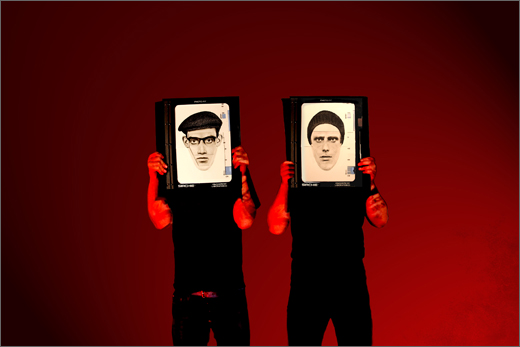
On the cusp of releasing Impossible Star, the first full-length album in over seven years, Jack Dangers of Meat Beat Manifesto embarks on a yet another groundbreaking jaunt through otherworldly terrain. Encompassing MBM’s signature audio collage of bass, beats, and distortion, Impossible Star delivers on all minimal and maximal fronts. Always one to merge staccato rhythms, drifting synthesizer melodies, and organized instrumental chaos, the new album for Flexidisc is a virtual smorgasbord of sonic delicacy. Broken percussion merged with punchy robotic jolts and arcane noises allows Jack Dangers to delve further into his version of dub, bass, breaks, and ambient realms. Impossible Star also features a few lyrics peppered throughout including “T.M.I.” and “You Are Surrounded” (which premiered here in October 2017) front and center. A blast to the senses, tracks like “Unique Boutique” and “Synthesizer Teste” display MBM’s (familiar) disjointed electro leanings and rugged vocoder treatments, while “ONE,” “Liquidators,” and “Rejector” offer turbulent ambient deconstructions.
Christopher Mathieu (based in France) recently had the opportunity to speak with Jack from his home in the San Francisco Bay Area where we learn a little more about his current and past inspiration. Along the way Christopher discovers the inner workings of the live setup, upcoming shows, music and remixes in the pipeline, as well as some of the background behind early releases such as Archives 1982-88, Storm The Studio, Armed Audio Warfare, Satyricon, Subliminal Sandwich, RUOK?, and a few in-between. In this interview you’ll also find out Jack Dangers’ favorite remix of his own work! All that, and a whole lot more, is uncovered in this in-depth Q&A session.
Christopher Mathieu :: In 2007, you released Archives 1982-88, so it seems you started making music at the age of 17. What do you think it is that turned you to music as a creative medium rather than say, cooking or painting?
Jack Dangers :: I don’t know. The only thing I was any good at at school was art and English and I didn’t play any musical instrument or anything like that when I was a kid. I was not from a musical family but my brother was somewhat older than me—he was like 16 years older than me, so he was into music I wouldn’t have been into if he was the same age as me. So I sort of accidentally got to hear things like Tangerine Dream and Isao Tomita, stuff like that, in the mid-70’s. Then I sort of discovered Kraftwerk’ “Trans-Europe Express.” I heard it on the radio. There was a BBC 1 radio program where they ask famous people to list their favorite songs, and Phil Lynott from Thin Lizzy was on one episode and his favorite song was “Trans-Europe Express”!
That’s surprising, coming from him.
Yeah! That was like in 1979. That was the first time I got introduced to them, and then I discovered things like The Human League, and you know, Gary Numan at the same time, John Foxx and … yeah, people like that. ’79-1980. And the other good thing about living in Britain, and Europe I suppose, at that point, was that John Peel was on Radio 1 ! He was a big supporter of hearing, like, things for the first time. So yeah, those are… just how I opened to those influences or scared me away from art into trying to make music. The first thing I actually went into a studio to do was a track I did in 1981, so I was only 16 then. Uh. Pretty early. Yeah.
In 1986, you started Perennial Divide, and already you seemed to be into repetitive, hypnotic ambiences, which is kind of your trademark still. Could you describe what draws you to it? You seem to focus on that a lot.
Oh, right! (laughs) That type of thing? Yeah—I suppose that would be the definite influence of Tangerine Dream, for sure! They’ve more or less created that sort of sequenced thing being sent in an echo machine, which a lot of people still use now and that Kraftwerk used a lot. You know, like they used it with Moog Modular synthesized sequencer and the Moog just offered you that sound. They didn’t have any beats or anything like that so much, it was all padded synthesizer stuff. They were definitely a big influence, Tangerine Dream, on me, for sure.
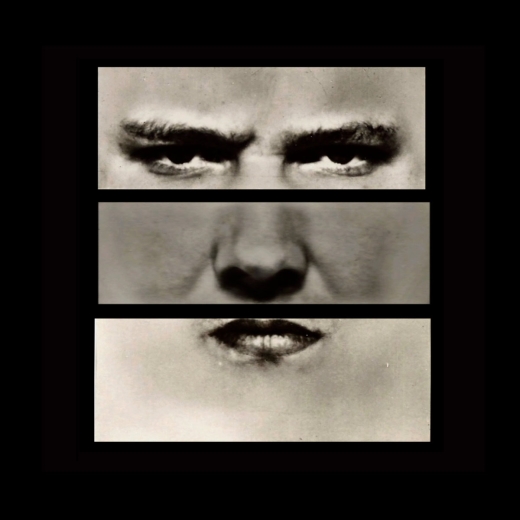
It seems to spark something in you, because even when you try to do something different, you always end up building a track that is very hypnotic. It seems to be something you’re drawn to.
Yeah, you know, trying to go and do something I might be inspired by usually ends up sounding like what I usually do. (laughs) It’s just the way it is. You know, I’ve recorded other types of music. There’s so many different avenues you can go down. So it’s, you know, multi-facetted.
Then Meat Beat Manifesto begins. How did you get that name?
It was a lyric from “Strap Down,” which was one of the first songs I did back in 1986, and there’s a line in there where I say “It’s the meat of the beat!” and yeah, it came out of that.
A few singles came out, then you had Storm The Studio. You also recorded an album that was lost in a fire that you re-recorded as Armed Audio Warfare. Was that its original title?
Well, originally, it was gonna be Storm The Studio and part of it got destroyed in a fire in a flat in Soho, so I had to go back in the studio to redo it. Then we had extra time in the studio so it sort of expanded from finishing off Storm The Studio and then putting out the tracks which were left over from what was originally going be Storm The Studio. If we hadn’t had the fire, that album, Storm The Studio, would’ve come out in 1988. That would’ve been the first album, but because of it…
It would’ve probably had a very different track-listing.
Yeah, it would’ve had primarily things from what turned out to be Armed Audio Warfare.
Which track do you think was a breakthrough for the band? “God O.D.,” “Helter Skelter,” “Radio Babylon”? Maybe “Strap Down”?
I don’t know, really. We put the first 12″ out, and you know, it piqued people’s interest. But we only had like 10 to 15 minutes worth of music, but we still did, like, live shows which would last [a much shorter time, like Spores Vox and things like that]. I think the first record which got noticed would’ve been Storm The Studio, when that album came out. I think that’s the one. Before that, it was just, you know, two 12-inches and some remixes. So until you had more than just a couple of tracks, I think that’s the thing which sort of got people interested. Then we went on tour, and I think it was March of 1989—and yeah, after that, that was the main thing which got people interested, I think, the first album. It’s a shame that it didn’t come out in 1988 when it was ready to.
The song “God O.D.”—which is on Storm The Studio—when you perform it live, it’s a whole different version.
There’s another one we did a while ago which is completely different as well. But, you know, the whole point of putting this thing on the road was that the music was going be different and we had a lot of visuals, live, and dancers, and stuff that made sense to have all these different versions. The album was basically re-workings of the 12-inches which had come out at that point. So, that’s three or four versions of each song but completely different. But the live thing was an extension of that. If you do a new version of it, what makes it that song ? Is it just the lyrics, just the vocal ? Because you can put it over anything. You know, you can put it over an ambient pad, just as long as it’s got the lyrics in there, you know, it’s a version of “God O.D.” (chuckles)
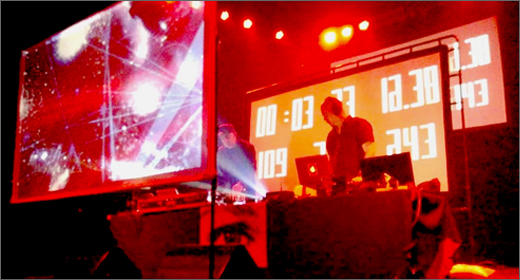
And then you put out “Helter Skelter” / “Radio Babylon.”
Yeah, that was initially a remix of some of the tracks off of 99% that just turned into its own thing. It was going be a version of “Psyche-Out” and it turned into “Helter Skelter,” which I spent like a week doing that. It was a bunch of different songs to be honest with you. It wasn’t just one song, it was all elements of three or four and then just sort of turned into its own thing. Like, after the first day, I realized it was going to be a good song anyway, so I abandoned the remix idea. Spent a week doing “Helter Skelter” and then I had like two days left in the studio, and then I did a version of “Helter Skelter” which turned into “Radio Babylon.” From these ideas came out something completely different.
I think you came up with a very unique breakbeat sound with these two tracks that you can’t really find before. I mean, you definitely brought something to it. And I think you’re often credited for pioneering this kind of breakbeat that you can probably find in The Chemical Brothers for instance or others. Do you have the sense that you brought something new to the table when you did these tracks? Or do you think that you’ve dug into things that had come out before ?
Yeah, I was more or less inspired by a Depth Charge track, the first Depth Charge 12″. And then, hearing that—you can play it at different speeds. There’s no vocal samples to make it sound like it was being sped up or slowed down. And then, I remember liking that. Although I used vocal samples on “Helter Skelter” and “Radio Babylon,” it wasn’t designed to be played at multiple speeds but I did it at a faster tempo and sort of double-timed it. And then—yeah, there wasn’t the sort of technology to do stuff like jungle or drum’n bass. That needed a program called Recycle.
I remember that.
Yeah, it came out in 1994. We experimented cutting beats up into little slivers. They were doing that back in 1990, but yeah, it wasn’t as good as that program so I sort of abandoned that idea. So, the way I sort of made those beats sound that way was just through sending them through different machines and chopping the beat up as much as I could! But, you know, back then, in 1989. But yeah, The Chemical Brothers, I know they sampled a beat from “God O.D. (Part 1)” from Storm The Studio. So, yeah, that was more of a sort of a harder compressed distorted thing, and that would’ve been inspired by people like Adrian Sherwood. What he was doing with all the different bands, he was working with in the 80’s. So he was always a big inspiration for me, Adrian Sherwood.
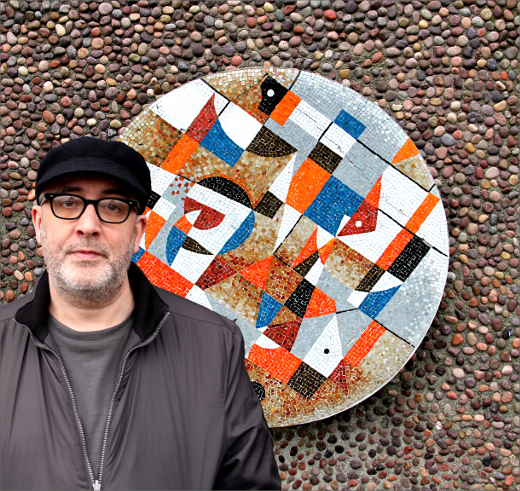
On to Satyricon, which is a very conscious album, in a way. It’s the last album in which you rap—if you exclude maybe (the track) “Solid Waste” (from 2008). And yet, you still rap live! Why did you even stop at the time? Because I have the feeling that in terms of UK hip hop, you seem to be surprisingly one of the earliest rappers at that time!
Right. Yeah! Yeah, I suppose so! Me and the guy from Stereo M.C.’s. (laughs). He was pretty early on there for a skinny white guy from England trying to rap in an American style. There wasn’t very many!
Yes, but it did work! You had, of course, this British accent which turned it into something else and also the lyrics were more conscious. But when Subliminal Sandwich came out, there was none of that, you had totally given up on rapping. Do you know why you did?
No, I would say this: There’s some rapping on Subliminal Sandwich and even Actual Sounds + Voices, I’m just doing it in a different way. And then also, all the way through that period (mid/late 1990s), I always liked vocals which used whispering. So, you know, it was always a lot of that as well—and that could be done in a rhythmic way as well, it’s just you’re not yelling into a microphone. I’ve been doing Storm The Studio and, you know, yelling, shouting into a microphone, and then hearing Eric B & Rakim, like Rakim would always sound so laid back, like he’s sitting in a chair doing what he’s doing. So, I went one step further than that, you know, and did the whispering thing. So, that’s never really been sort of taken up on but I’ve always put that in everything I’ve ever done. One second you’re yelling into a distorted microphone, and the other second you’re whispering—so you can hardly hear it.
One second you’re yelling into a distorted microphone, and the other second you’re whispering—so you can hardly hear it.
So you’re not really into going back to making more fully rapped songs the way you did in “Solid Waste” for instance? Isn’t it something that appeals to you anymore at all?
Err… not really… I like doing it live, but you know, I’ve done that 30 years ago. I’m all about making it sound different from album to album. That’s what I’ve always tried to do. You know, you can’t keep going on about the same thing over and over as well. To be going on about Trump right now, over and over again, is such an easy target that sometimes it’s better to address those things at a different angle, and I’ve sort of done that on the new one, on the track called “T.M.I.” where I’m doing vocals on that in a semi sort of whisper. I’m not rapping on it though, but, you know, I’m talking about a subject which could be, you know, what’s going on at the moment, but not in a completely obvious way. I’ve never done that either. I’ve never been like completely in-your-face. So it’s going to be like a noise, a noise track or something, to get my aggression out, my anger.
Whatever it takes!
Yeah, exactly!
So, shortly after that, you made remixes for David Bowie. I’m asking because yesterday was his birthday (January 8). How did you get that opportunity? Did you get to meet him at all?
Yeah! Yeah, I did actually, which is pretty rare. Out of all the remixes I’ve ever done, there’s only been a few people you actually get to meet. Or, you know, they go out of their way to meet you. And, yeah, he heard Satyricon, he was working with Nile Rodgers, you know, from Chic. Nile Rodgers was his producer on that album, Black Tie, White Noise. Yeah, Nile Rodgers heard Satyricon, he liked it and passed it on to David Bowie and then he got in touch with my record label at the time and set up a meeting in London. So I went to hang out with him for a whole night. It was great! Being, you know, one of my heroes.
Wow!
Yeah, actually, I was lucky enough to meet John Peel as well.
I know! That’s right, you did the Peel Session EP in December 1992, and released in 1993.
Yeah! It was the same thing with him, (a lot of people met before he did like 30 Peel Sessions. He never actually ever met them. So, not everyone got to meet him, even if he did a session—but I was in Brussels where I actually met him and we ended up going from bar to bar, getting slowly more drunk as the night went on. (laughs)
But then you ended up recording the Peel Session at his studio.
Yeah, in Maida Vale, BBC Studios. Before everything changed and he moved into his own place.
And so, I suppose that’s about the time you moved to San Francisco?
Yeah, in 1993.
Why did you leave London?
Well, I wasn’t actually living in London at that point, I was living in a town called Swindon which is in the west country.
Yeah, in Wales.
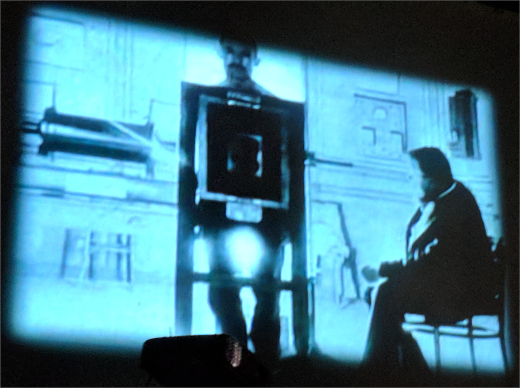
Yeah, I’d been living there for like 30 years at that point. So, well, about 28 years. And yeah, I just thought like “Yeah, it’d be a good change.”
But that’s a radical change for you. You’ve never come back.
Yeah, oh yeah! Well, I was to come back (laughs) but I’m still here. It was going to be a temporary thing, but I’ve got too many records. I could make a house out of all the records I’ve got, like living in the middle of it.
Wow.
Yeah, it is difficult to. I’m trapped with all my godly possessions. I should get rid of them all and go live on an island in the Pacific. (laughs)
But the rest of the band, Meat Beat Manifesto, as it was at that point in time, did it fall apart because of your move to the US or did you already have internal problems with them? I mean, how did they take the fact that you wanted to move?
Well, I’ve always written the music, so, you know, wherever I would live, it would be the same thing, you know. If I lived in France, it would’ve been the same entity going along. It’s just a work with different people live. And yeah, there’s a couple of occasions where, you know, I’ve worked with different singers and stuff like that, mainly on “Autoimmune” actually. But yeah, usually, it’s just me on my own writing the stuff and then we go on the road. So that didn’t really make any difference where I was living or working, and it’s always changed anyway, it’s always evolved into different line-ups, mainly live. Now, it’s just two of us. It’s just me and Ben Stokes. So it’s a lot lighter to tour these days than it was 30 years ago when I had like 15 dancers and all this crazy stuff. How can you take them with you? How can you take all the dancers when you move to another country? (laughs)
What made you choose San Francisco over maybe New York or Chicago which were probably more industrial? Wasn’t it difficult as a local music scene for you? Wasn’t it less ideal, I suppose, than maybe living in New York?
Well, any place was better than living in Swindon at that point. Now, it would’ve been better living in London but I’d already done that. I was living in London in the 80’s, so… done that one. I was working with Consolidated and The Disposable Heroes of Hiphoprisy in San Francisco for a few years and that seemed like a good place to have a base. Plus, the music scene here, you know, it’s like in New York. I wouldn’t say it’s like Chicago—Chicago’s just a weird place. Like hip hop, there wasn’t any hip hop in Chicago in the 80’s. Or even in the 90’s. There was no house or techno. Yeah, and industrial, you know, ’cause there’s Wax Trax. But yeah, San Francisco is like London, or Paris, or New York. Everything changes very quickly. You know, whatever’s fashionable is there, then it’s unfashionable. So, I sort of like that. Yeah, there’s only a few places like that over here (in the USA,) and San Francisco is one of them.
So that’s where you made Subliminal Sandwich, which is very trippy. How come the 2nd CD came out as a limited edition only? Why did you do that? I mean, it’s really amazing.
Oh yeah! Yeah, well it was supposed to be double. I did it as a double and it came out as a double vinyl, double, you know. It was a single CD! But it came out over here like that. It was only in Europe that the label didn’t want to do that so they made that decision that doesn’t have anything to do with me, because you know, I had already written all the music. That was their (lame) decision. Still scratching my head why they did that ’cause it was just a stupid move. But, you know, that’s what happens sometimes.
Then Actual Sounds + Voices came out, so you’re back to faster beats, and “Prime Audio Soup” ends up on The Matrix soundtrack. How did that impact Meat Beat Manifesto’s career after the movie’s success?
Oh, not at all! No, every time we still played it live (laughs) it was this, like, you know, it didn’t really light anyone’s fire. When they were making that film, they were using 6 tracks from Actual Sounds + Voices. They’re using 6 songs in the making of it, when they were filming it, they got it playing through the speakers and they’ve whittled it down to politics once again. Record labels. They hold it down and put in other bands, you know. The label, they took 5 tracks out, just left “Prime Audio Soup,” and there’s only one in the film where they edited the music. You know, it’s just the politics of the music industry, so it didn’t do anything for our career, it was just, you know, it’s just luck they even left that one in there, to be honest with you. (laughs)
But didn’t it spark anybody’s interest for the band, to try to dig further? You didn’t sell more records or?
Erm, not really.
Not significantly?
Not how I remember it. I think there was a commercial which wanted to use the music because it was in that film. It was all, you know, loose connections like that. It wasn’t anything like—I don’t think it sort of imprinted itself with the name of the band. It’s always just like “That track: (sings the opening sequence),” they don’t even know what the title of it is. But the best thing about it is that we put it out as a single, and then Boards Of Canada did a remix of it. It’s brilliant. Best remix I ever got done by anyone. They spent ages. They spent a long time doing it. So that was the best thing to come out of that.
So then you did the Tino project with Ben Stokes. I have the feeling that Tino was bringing something very joyful and happy. Your music was very introspective and Tino was actually very different. It seemed to be very liberating. Something very free and fun!
Yeah. I’d agree with that. (laughs) That was a good description of the Tino records.
And of course, you no longer do these but don’t you miss having that kind of outlet?
Erm, well, yeah We did a bunch of records initially, and then we were doing a remix record of tracks from Storm The Studio, and halfway through, when they were actually putting out the CD’s, the company went bankrupt and we lost like $20,000, and then that sort of made everything go pear-shaped, and that stopped us in our tracks because we’d just lost all our money. (laughs) So it was one of those music industry things again.
All of a sudden, it was less fun.
Yeah, you try to do your best and you get all these remixes lined up from people all over the world. People like Scanner and—yeah, it took a while to get all that together, then halfway as we’re getting them printed out, the distribution company goes bankrupt and they owe us money which we never ever got. So, yeah, you know, bad luck I suppose. It needs a lot of luck, the music industry, and we haven’t always had that. (laughs)
So, then RUOK? came out, and you know, I don’t mean to encompass all of your following recordings as one because they’re all different, some had more bass. You can tell that RUOK? is very Reaktor-based and such, but globally, it seems that you’re always trying to go deeper into explorations of dub grooves and it seems as though you’re trying to reach a certain goal, as if you’re trying to find the perfect beat! To paraphrase Afrika Bambaataa, “Looking For The Perfect Beat,” you know?
Yeah! (laughs)
It seems that from then on, you’re in a different headspace than you probably were in the 90’s, into something that’s more dub, loungy, I mean not exclusively because there’s a bunch of tracks, which of course, are the opposite of that, but I mean globally. Maybe you don’t even think about that and I do! (laughs)
(laughs) Yeah, I suppose it’s just going back to your roots, I suppose. You know, I did a lot of dub stuff in the early years too. You know, there’s a track on Subliminal Sandwich which was actually the same tempo as dubstep. It ‘s gotta be like 70 BPM / 140 BPM. So I’ve always had that in there and everything I’ve ever done. It’s always been a dubby bass. When I play my bass, I don’t play it like a slap bass or anything, or with a pick or a plectrum. I play it like a dubby bass, so I’ve always done that. It’s always been there. Yeah, I don’t know, it’s just, you know, always trying to do something I haven’t heard before, and I’m sure your influences poke through no matter what you do. So, you know, I’m still looking for that perfect beat. (laughs) Still looking! I still haven’t found it yet. Still looking.
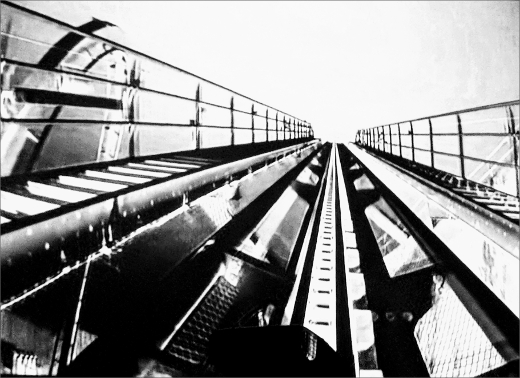
You’ve had a heavy use of movie samples over the years, so I suppose it indicates that you’re a bit of a film buff yourself.
Yeah, not so much these days!
Oh really? But did you used to be?
I used to be, growing up in England, in Swindon. There wasn’t much else to do but listen to John Peel and watch movies. I don’t do that anymore.
But have you ever had the wish to score films?
Erm, no, not really!
Oh, I’m surprised!
Yeah, that’d be a hard job.
Yes, but your music is quite moody, I mean it has all the elements to make a proper soundtrack, especially these days when you have Trent Reznor who puts out a soundtrack for The Social Network and such. I mean, it seems that there’s more and more an opening for electronic music as soundtracks. It’s not something that appeals to you?
Yeah… No, not really.
Ah, that’s surprising, okay.
Yeah, I would try and do it for myself if I was making a… Yeah, I do a lot of videos! That is, you know, so obvious, we do the music for the video. But to do a whole film of an hour and a half? You know, it depends on what level it is. Like if it is on a big level, you know, high level, you’ve got be more or less based in LA to do that. And I wouldn’t do that and live down there. And I just think it would be a lot of work, which I wouldn’t really get any fulfillment out of, to be honest with you. I don’t think you’ve got 100% control for a start when you do that. ‘Cause, you know, what’s gonna happen if you’re gonna do the music, and then they’re gonna want to change everything, basically? You know, like clocking in, clocking out. It’s like a job which you’ve lost your real inner sense of why you’re making the music.
But I could totally picture you doing the soundtrack, maybe for something that’s very independent and maybe experimental that you would have full control over you know?
Yeah. funny you should say that! We did a show in LA a couple months ago (Cold Waves). It’s just stereotypical as that, but, you know, someone who was at the show, I spoke to him afterwards, he said he was making a science fiction film (its very early days.) They’re making a science fiction film and they want my music in it, but you know, I don’t know how that’s going to pan out or anything like that. If they just want my music the way it is and the way I do it, it would be fine, but if they want me to work with the Kronos Quartet (snickers) like string arrangements and go record it at Skywalker Ranch, you know, I don’t want to do any of that.
Yeah, I understand.
But if, say, you know, they want to use the music how it is I want do it, like, you know, science-fiction sound effects, stuff like that. Yeah, I’ve done some pieces doing that, but I don’t know if this is going to pan out to be like that.
Sadly.
Yeah, this is the same people who’d offered things like that through the years and I’ve always turned it down.
And well, you’ve been steadily prolific throughout the years ever since, and yet, 7 years have passed since Answers Come In Dreams. What happened?
You know. The usual life stuff gets in the way. Boring life things. I had to move, which took a big chunk of time out. I was working in another studio for two years, and everything I did there I had to redo again because I didn’t like the sound of it. So yeah, just boring life things which get in the way. We moved house and then moved back. I couldn’t really have a project during that time. I did the Test EP. I was doing The Forger (alias). I did videos for that. I got into making videos a lot, so that took a lot of time out, and yeah, “Synthesizer Test,” I did a video for that which took forever. Plus, you know, I’ve been doing albums in a row for a good 20 years, well, 25 years. Up to that point where I just wanted to slow down a bit and do an album which I think is perfect, so that’s what I did. (snickers) Perfect in my mind doesn’t mean it’s perfect though.
It’s good enough! That’s what you’re trying to reach after all. You wanna make yourself happy first.
Yeah (snickers) I want to do an album which is imperfect. It just takes longer than doing a perfect album. (laughs)
How do you compare your new album (Impossible Star) to the previous ones or even to the Kasm EP that came out in 2015? I have the feeling that you’re going always into more minimal content, as opposed to, say, Actual Sounds + Voices—it was quite heavy in production. And now you’ve gone in the total opposite direction, very minimalistic, kind of dub, bass, dubstep—I don’t know what you want call it. Yea, minimal!
I think, actually, probably Actual Sound + Voices is even a little bit more minimal than this one (Impossible Star.)
Oh really?
Yeah, I think so. You know, it’s more of a stripped down dubby dubstep type of thing whereas this one is more sort of going back over all the years really. Yeah, well, I think you know, with this one, I had like a good 30 tracks to choose from, which I’ve never had that luxury before. That makes it different, and well, probably, you know, some of these other tracks which didn’t make it on here—I’ll release those at some point, I’m sure. But, you know, this album could’ve been like a triple or quadruple but I just wanted it cut down to 12-13 tracks, including the more abstract tape pieces, ’cause I still use tape a lot to make music, obviously, in a musique concrète way. They’re not gonna have beats and dub stuff all over it. So I suppose that could make it sound minimal as well. So it’s more like the techniques you’re using, and on this record I’m using all of them from all over the last 32 years. It’s like real instruments on it, there’s ambient stuff, there’s musique concrète, there’s noise, there’s tracks with a lot of stuff going on (laughs). Actually, there isn’t a lot of stuff going on. So, yeah, it’s sort of an album encompassing styles and things I’ve done over the last 32 years.
So what do you think made you want to encompass everything and put it out now as opposed to maybe earlier?
Well I had this album finished two years ago, so that’s another thing. But it’s still up-to-date, sort of. Like “T.M.I.,” lyrically makes sense even more now than it did two years ago. Like when we were playing shows two years ago before Trump was the president and everyone thought Hillary Clinton was going to win, nobody knew that Russians were working with the Republicans, etc. etc. And I had a video we’re playing live of Trump’s head exploding, like, from Scanners. You know the film Scanners?
Yeah, absolutely!
I superimposed Trump’s head.
Oh you did? (laughs) ’cause you already used Scanners in the previous live shows you did.
Oh yeah. That’s a favorite. It’s a favorite of mine. I’ve got a huge collection of exploding heads. (laughs) I think the whole world’s going through that right now. (laughs) So, yeah, I had it done two years ago when we were doing the shows, played at Cold Waves (in LA) and Chicago two years ago, and yeah, this album was supposed to be coming out then. But once again, the music industry politics and things like that made it, you know, sit there, for it to come out now. Otherwise, it would’ve been out two years ago, which, in any event, there won’t have been such a big gap between 2011.
So, does that mean that you’re already working on the new stuff?
I am actually! I’m doing a remix of some of the tracks off of this album and we’ll bring it out as a 12″ in like a couple months, or a month, something like that. It takes a lot longer when you’re doing vinyl. If you’re digitally releasing it, you can do it, you know, you can bring it out that day! It’s finished. But with vinyl, there’s three months song and dance of getting it mastered for vinyl and getting test pressings, getting all the artwork besides all those things. We got rid of all that hassle. And now everybody wants it back again. (laughs)
Exactly.
You want to do vinyl again and you try to go through that whole process.
You released the Original Fire EP 20 years ago with a lot of outtakes. Do you intend to do that again with more outtakes of stuff you wouldn’t have released yet?
Yeah, we probably will do that this year. Just because there’s so many tracks. Like, you know, this new album, I’ve got 13 tracks on it. I did have a huge surplus of extra music.
Bring it on!
I know! Let me get it ready. (snickers)
So what are your touring plans because you’ve had one date in the US. I think there’s more that have been announced.
Well, no, not yet, there’s none which has been announced. But yeah, we definitely want to get some more live shows. I’m trying to get over to Europe as well. We’ve not been in Europe since 2011. So, hopefully, we’ll be able to get over there, and, you know, it’s easier to sketch more shows over here because we live here, you know, than have to go through the whole process of getting equipment carnet and all that stuff just to do the same, you know, sort of show which you’d be doing in Europe. It’s a lot easier just to do ’em here. But hopefully, yeah, hopefully, we’ll get over there as well this year.
Do you have anything to say about the new live setup? How different it’s going to be from the previous one?
Well, we’ve been doing this show. Actually, it will be similar. It’s just me and Ben (Stokes), like the live shows we did in 2011. It’s just the two of us. They will be similar—just different content. We still use a lot of video sampling live and we’ve got some new tricks and things. We do have some new things up our sleeve, so… but, you know, we’re doing more of the older tracks as well now than we did back in 2011. So, actually, the last show we did in LA, we did “Psyche-Out” which we hadn’t done live since 1993 I think. 1992 or 1993? It was a good over 20 years of not playing that track. Actually 25 years (laughs). Yeah, digging back into the old tracks and reinventing them and doing new visuals for them. All that sort of stuff.
Impossible Star is available on Flexidisc January 19, 2018.
Interview by Christopher Matthieu, introduction by Pietro Da Sacco.






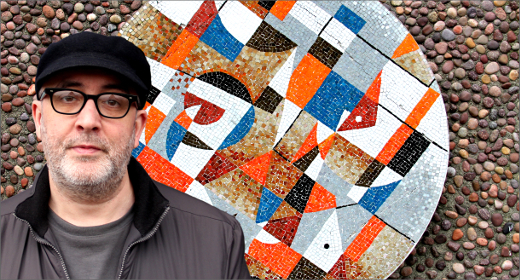




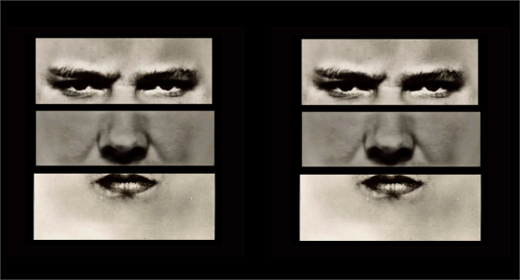
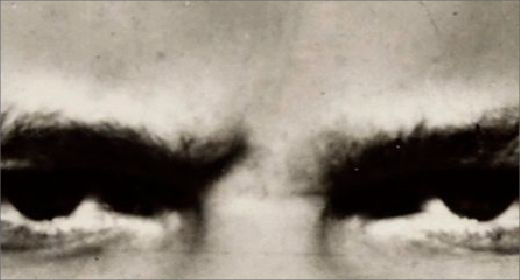

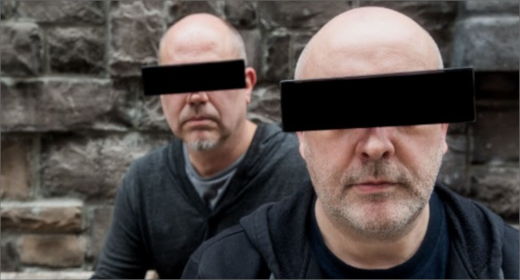
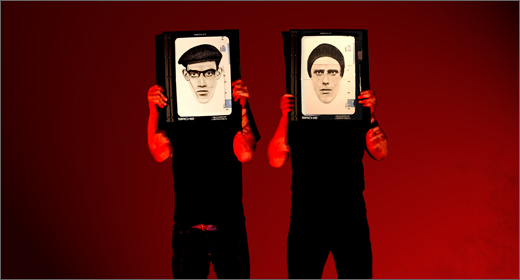
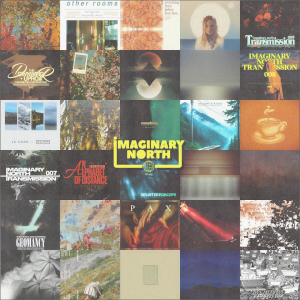






![Allmanna Town :: 1911 EP (Self Released) — [concise]](https://igloomag.com/wp/wp-content/uploads/2025/03/allmannatown-1911_feat2-75x75.jpg)


